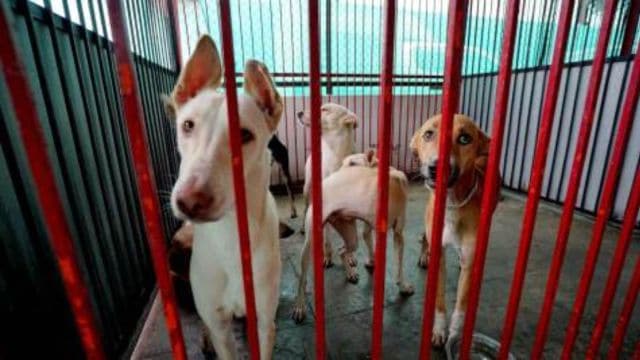The bench of Justices J B Pardiwala and R Mahadevan underlined that the canines should not be returned to the streets, and warned of action against any individuals or organisations who “come in the way”.

The SC had taken suo motu cognizance of the issue on July 28, following a news report on the stray dog menace.
“State of NCT Delhi, Municipal Corporation of Delhi (MCD), New Delhi Municipal Corporation (NDMC) and appropriate authorities of Noida, Gurugram and Ghaziabad shall at the earliest start picking up stray dogs from all localities, more particularly vulnerable localities and cities as well as areas on the outskirts. How to do it is for the authorities to look into, and if they have to create a force, do it. However, this should be the first and foremost exercise, to make all localities free of stray dogs,” said the bench.
“You will have to launch a drive with some force, you will have to round up all the stray dogs, whether sterilised, not sterilised, society should be free from stray dogs. You shouldn’t find a single stray dog moving around anywhere in any locality of the city or outskirts. That’s the first step. Then we will decide what is the next step,” Justice Pardiwala said.
The court directed the authorities “to maintain a daily record of stray dogs captured and detained”. “However, what is important, and without which the entire exercise would be futile, not a single stray dog should be released, and if we know that this has happened, we will take stern action,” it said.
Saying that “there should not be any compromise in undertaking any exercise”, the bench warned that “if any individual or organisation comes in the way of picking up stray dogs or rounding them up, we will proceed to take action against any such resistance.”
Story continues below this ad
The bench refused to allow animal rights activists to intervene. “All intervention applications rejected. In the larger interest of the people, having regard to the grim situation prevailing, having regard to the manner in which young children, babies… have fallen prey to these dog bites, we would not like to hear anyone except the Solicitor General and amicus curiae (Senior Advocate Gaurav Agarwal),” it said.
“Infants and young children, at any cost, should not fall prey to rabies. The action should inspire confidence that they can move freely without fear of being bitten by stray dogs. No sentiments should be involved,” said Justice Pardiwala. “All these animal activists, all these so-called (animal) lovers, will they be able to bring back those children who have fallen prey to rabies? Will they put life back to those children,” he said, adding that “the situation demands (that) you have to act.”
The court also termed as “absurd”, a provision in the Animal Birth Control (Dogs) Rules, 2001, which says that stray dogs picked up from an area should be returned to the same place after sterilisation/ immunisation. “We have noticed one very absurd, unreasonable rule. It says if you pick up a dog, a stray dog from one part, you sterilise it and put it back at the same place… Doesn’t make any sense at all. Why should that stray dog come back to that locality? For what? What’s the idea behind it,” Justice Pardiwala asked.
The court asked the authorities to build shelters, saying that they should first start work on a shelter for 5,000-6,000 dogs in the next six to eight weeks. It sought a report within eight weeks on the creation of infrastructure. The shelters must have sufficient personnel for sterilising, immunising and looking after stray dogs, which “would be detained there and not released in public places,” it said. The centres should be monitored by CCTVs to ensure that no dogs are taken out, it said.
Story continues below this ad
Calling for creating a helpline to report dog bites and rabies within a week, the bench directed that action should be taken within four hours to pick up a dog after a complaint is received, “and any action of individual or organisation coming in the way will (face)… stern action.”
Saying that “availability of rabies vaccine is a major concern,” the bench said the authorities, “more particularly the Government of NCT of Delhi is directed to put detailed information about the places where such vaccines are available, the stock of vaccines and the number of persons who report for treatment on monthly basis.”
The bench agreed with Solicitor General Tushar Mehta and Agarwal (amicus curiae) that while sterilisation can prevent reproduction, it cannot reduce the risk of rabies. Thanking the court for its intervention, Mehta said, “rabies has no cure in medicine and we have seen in YouTube videos, children dying and parents crying helplessly because the doctors also say we have no cure.”
Senior Advocate Siddharth Luthra, appearing for Gauri Maulekhi, trustee of animal rights NGO People for Animals, urged the court to clarify that its order will not apply to pet dogs when it is implemented on the ground.
Story continues below this ad
But the bench did not oblige. “Your stray dog should not overnight become a pet dog…They are not fools…We are going through critical times as far as this issue is concerned…When you have to act, act,” Justice Pardiwala said.
Directing that its orders should “be complied with and implemented scrupulously,” the court sought a status report from the authorities when it hears the matter next.









